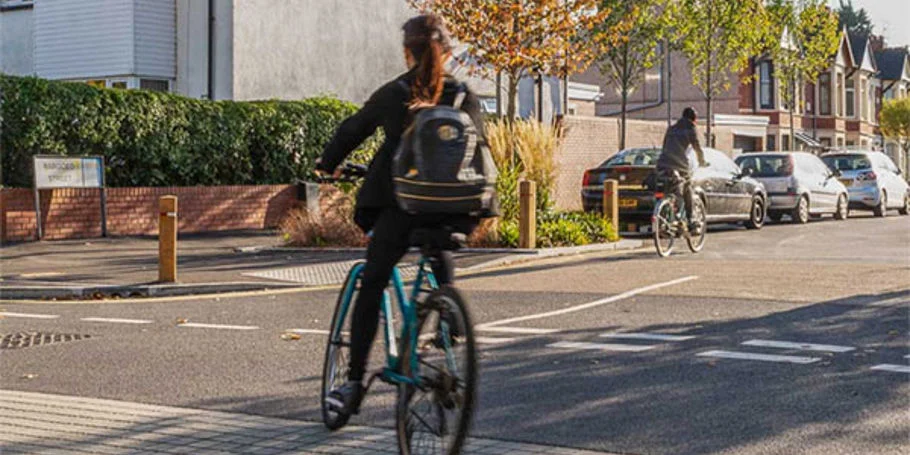Redesigning the gateway to San Francisco's Golden Gate Bridge to reconnect the landscape
Presidio Parkway
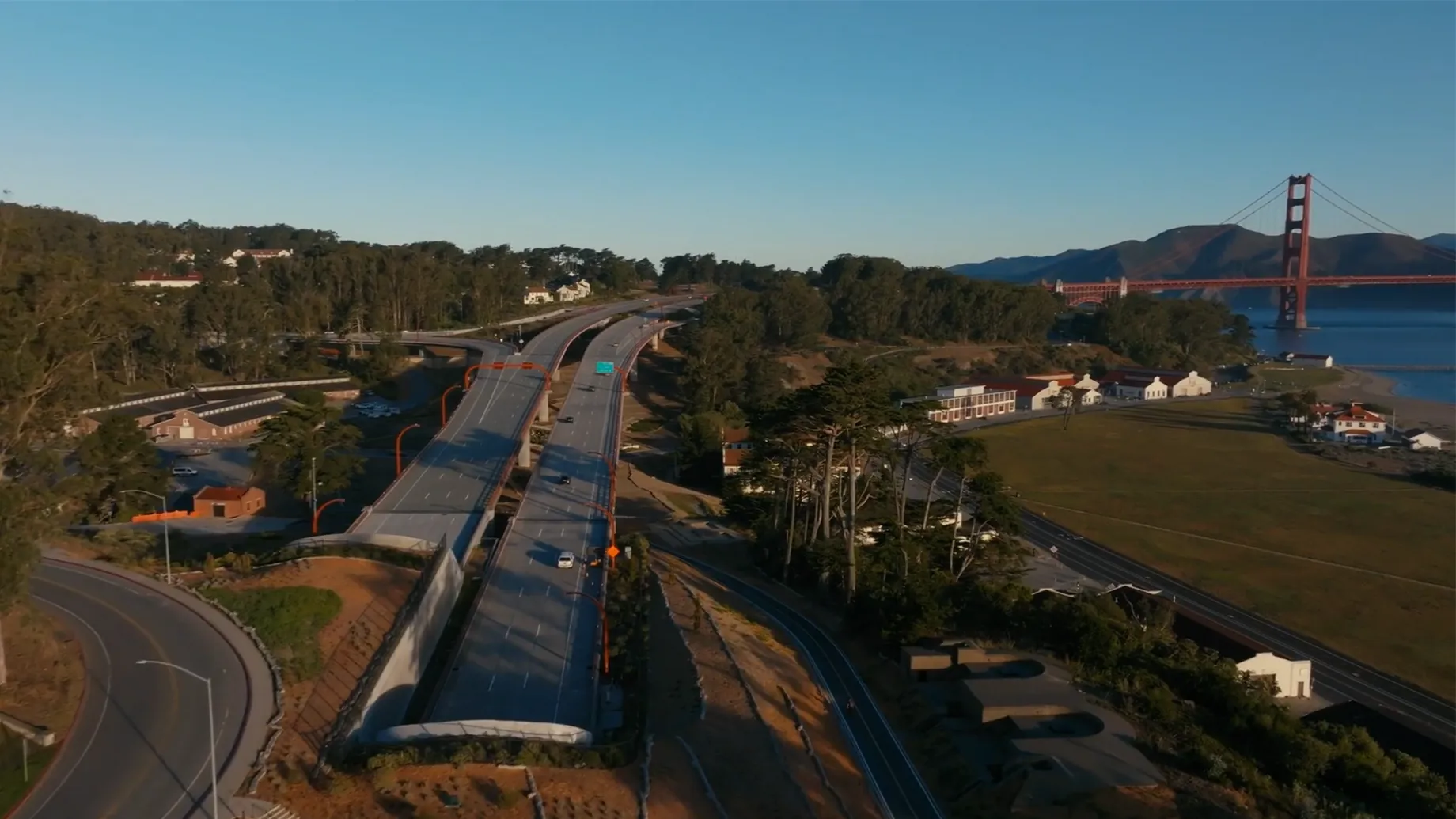
What we delivered
-
Providing the technical basis for reconnecting the historic Presidio National Park to the waterfront for the first time in almost a century
-
Supporting delivery of a complex $1B project to replace the existing highway while keeping 100,000 cars flowing to the Golden Gate Bridge
-
Enabling the vision of a tunnel top park that adds 20 new acres to the Presidio National Park and preserves and enhances San Francisco’s historic waterfront
Get in touch with our team
The Presidio Parkway today is unrecognizable from the original 1930s highway, which was built through the former US Army’s West Coast headquarters and is now the nation’s only urban National Park. This section of US 101, which serves as San Francisco’s gateway to the Golden Gate Bridge, was reconstructed to address deterioration and earthquake vulnerabilities.
The design works with the landscape, respects the historic buildings and veteran’s cemetery of the former Army base, and reconnects the Presidio National Park with San Francisco’s historic waterfront. Atop the tunnels sits 20 new acres of parkland, and the decaying and unsafe viaducts have been replaced with new infrastructure to continue to serve the region’s transportation needs for decades to come. It is a place where residents and visitors can play, relax, and enjoy nature.
Making this vision a reality required unprecedented collaboration among stakeholders from national, state, and local government and civic groups to engineers and consultants. Arup was a vital player in the design and delivery of the Parkway.
The Presidio Parkway has delivered on its promise. This years-long, multistakeholder effort is now a case study for tackling the reconstruction of urban infrastructure for the wider benefit of the community.
Replacing a dangerous, unsightly freeway
Over 30 years ago, the ageing Doyle Drive was no longer capable of safely serving its over 100,000 daily users. At nearly 75 years old, it was deteriorating and not up to seismic code standards.
A wide-ranging committee of government officials, state and federal transportation agency representatives, environmental advocates, historic preservationists, and private citizens were brought together as a task force to devise a solution for the replacement of Doyle Drive. The project came with significant challenges: they would have to remove and replace the existing infrastructure, maintain commuter traffic during construction, and preserve what had become a National Park from the former US Army base.
How could a single, purposeful design satisfy the needs of such a diverse group of stakeholders?
Not a highway, a parkway
To achieve this challenging task, landscape architect and urban designer Michael Painter came up with an idea to work the curves and layout of the replacement highway into the landscape. His goal was to open up views, reconnect the land to the waterfront, and preserve historic buildings.
Members of Arup were integral to early conversations about the Parkway plan. In partnership with Painter, our team evaluated the technical feasibility of reconstruction Doyle Drive, incorporating two short tunnels that would blend seamlessly and create new park land on top of them. We proved that the solution would not only meet the California Department of Transportation (Caltrans) safety regulations and support long-term traffic needs but would also result in cost savings and significantly reduce environmental impacts to historic buildings and wetlands.
Once the Parkway design emerged as the preferred solution following environmental review, the Arup team provided multidisciplinary engineering support to bring the plan from concept to detailed design and ultimately construction, including geotechnical engineering. In addition, Arup helped the public agencies responsible for delivering the project with a financial and project delivery plan that could be funded and best managed the risks of delivering such a large and complex project. During construction, Arup provided ongoing management and technical support that helped the agencies successfully achieve completion of the project.
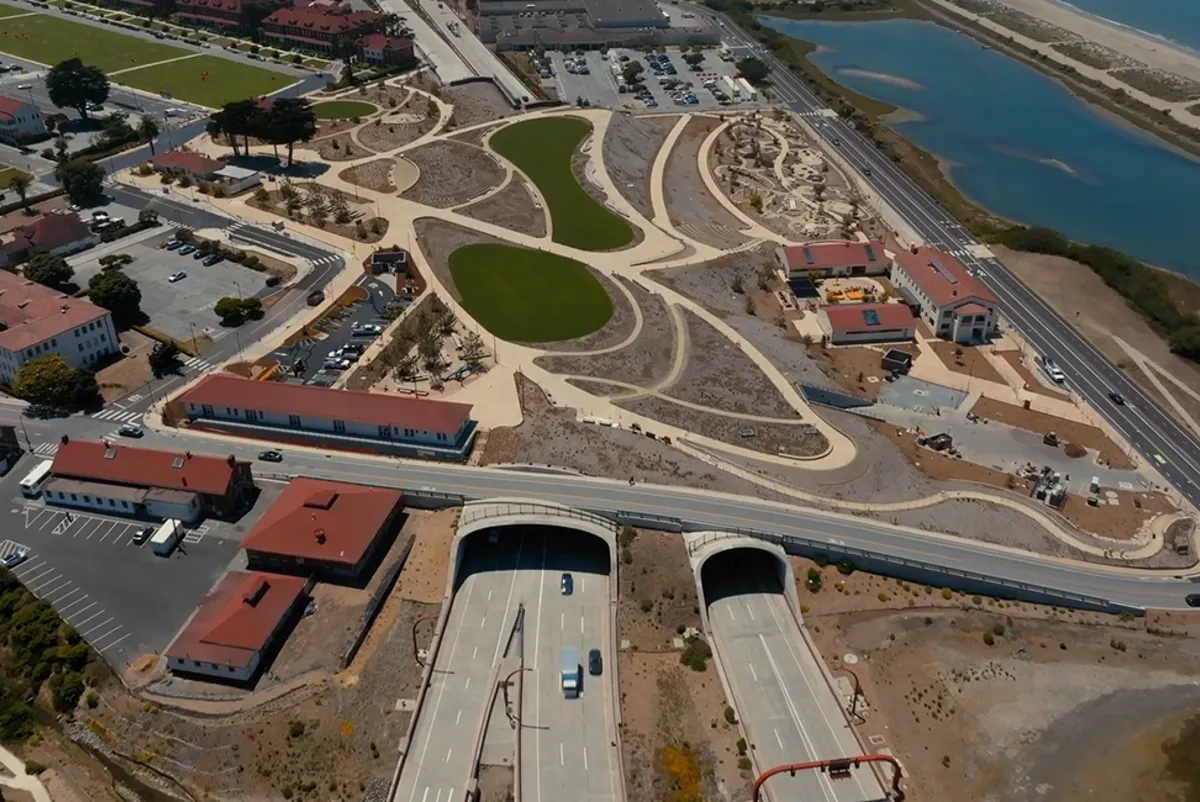
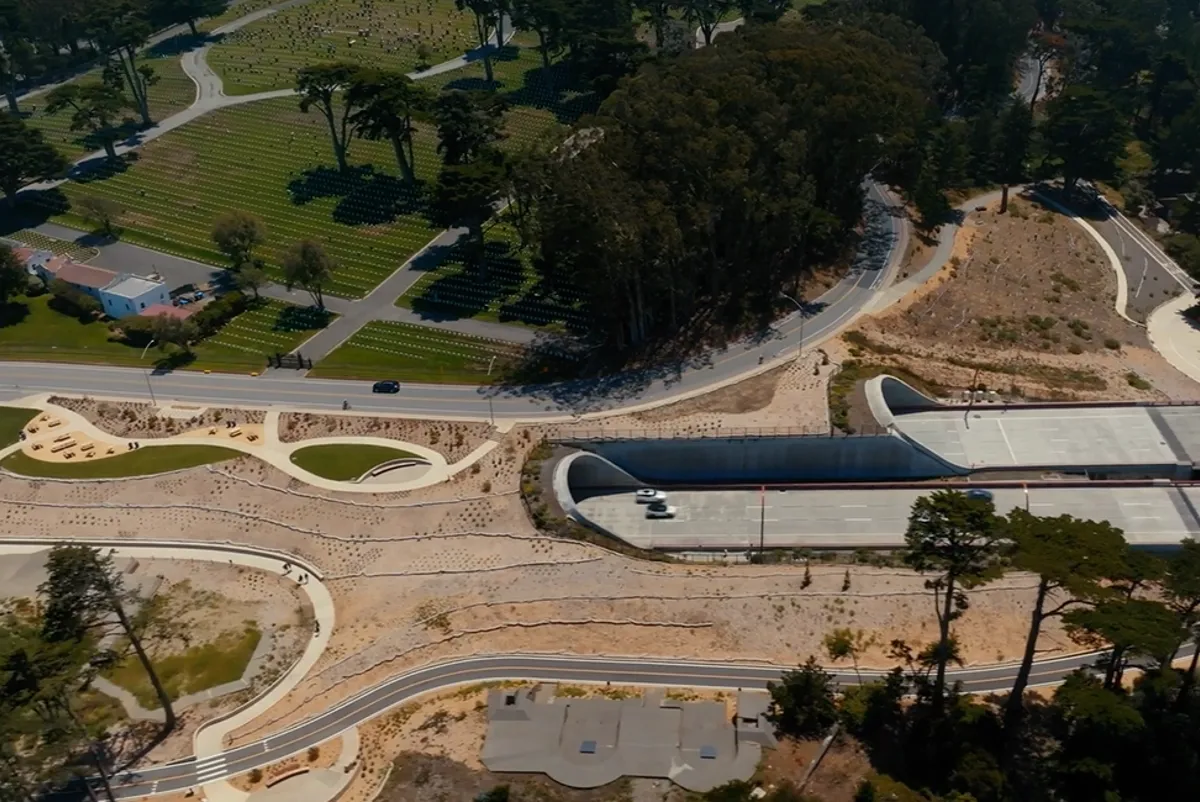
Cut-and-cover boring techniques were used to lessen the impact of the construction on local residents, and to blend the roadway into its surroundings.
Acquiring the funding for the project
Arup prepared a business case for the Parkway to evaluate the different methods for its delivery and financing. Our analysis supported a recommendation that a design-build-finance-operate-maintain approach represented the best value for money, which became the basis upon which public approvals were granted to pursue a public-private partnership (P3). While at the time not prevalent in the United States, P3 delivery has proven to be a successful delivery and financing framework for similar complex infrastructure projects internationally and in the US.
Presidio Parkway delivered in two phases with a combination of traditional and P3 methods. Construction of the project’s P3 phase was completed on time and at a lower cost than the conventional procurement methods more commonly used in California. In addition, the long-term operations and maintenance contract for the whole project ensures that the roadway will be maintained in good condition for the next 30 years.
Keeping San Francisco moving
Construction of the Parkway began in 2009. Two twin-bore tunnels were constructed using cut-and-cover techniques, which proved to be the most economical approach. This method lessened the impact of construction on the National Park and those traveling through the area.
The 1.6-mile highway, which provides a critical regional transportation link, was completed in 2015. Six lanes of traffic, three in each direction, traverse the Presidio and serve as the southern access to the Golden Gate Bridge. Pedestrian and bicycle links were reconnected across the National Park to reconnect the park and the waterfront for the first time in almost a century.
The shape of sustainable roads to come
The Presidio Parkway is an important step in keeping Bay Area residents on the move — while restoring San Francisco’s natural environment. It was one of the first projects of its type in the country to incorporate extensive sustainability features, setting it on a path to becoming the first Greenroads-Certified highway in the country.
The Parkway’s completion allowed the Presidio Trust, who owns and manages the National Park, to develop the Battery Bluff and Presidio Tunnel Tops projects. These two projects bring to life new park spaces for the community and visitors, completing the inspirational vision devised years before in Michael Painter’s plan and Arup’s engineering of the Parkway.
The new transportation access and Tunnel Top Park enabled by the Parkway have been an important contributor to the Presidio Trust’s extensive work to revitalize the land and repurpose the buildings of the former US Army base. Today, the Presidio National Park is not only a world-class urban park and outdoor amenity for thousands of residents and visitors, it also a bustling hub of economic activity for San Francisco with offices, shops, museums, and entertainment venues.
Arup was one of the many diverse stakeholders that collaborated extensively to bring this vision to life. This project serves as a model for how elevated highways can be reimagined to stitch a community and nature back together.
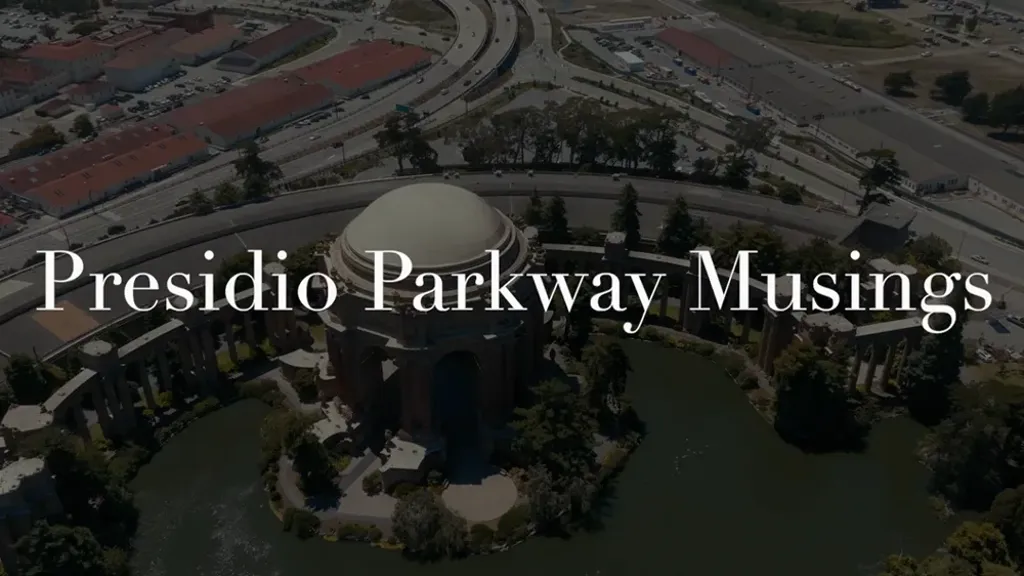
Jose Luis Moscovich
Director of the San Francisco County Transportation Authority
MPA Design / PB Americas Inc.
Projects
Explore more roads and streets projects
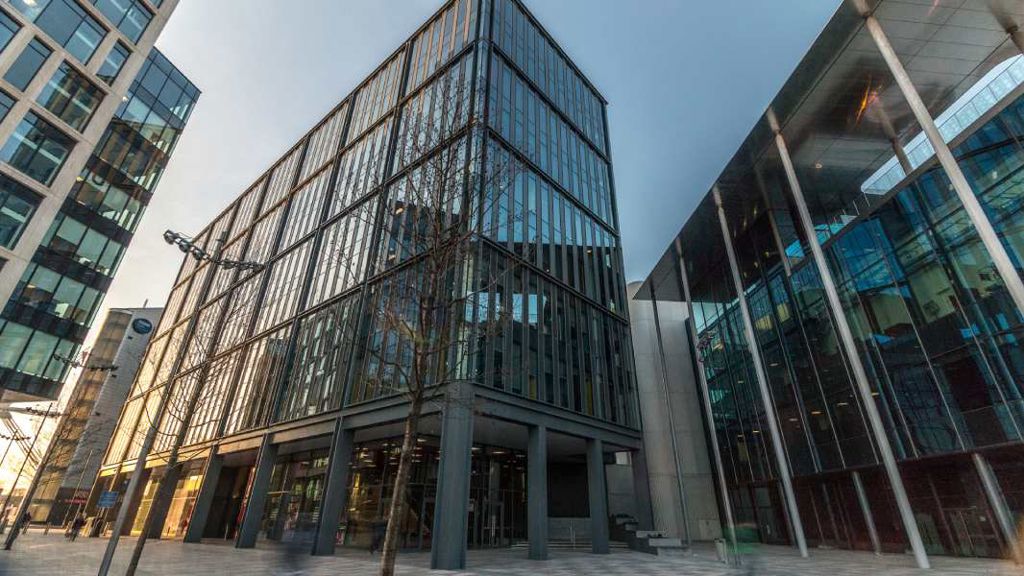
Major redevelopment transformed with integrated transport and sustainable design
Cardiff Central Square
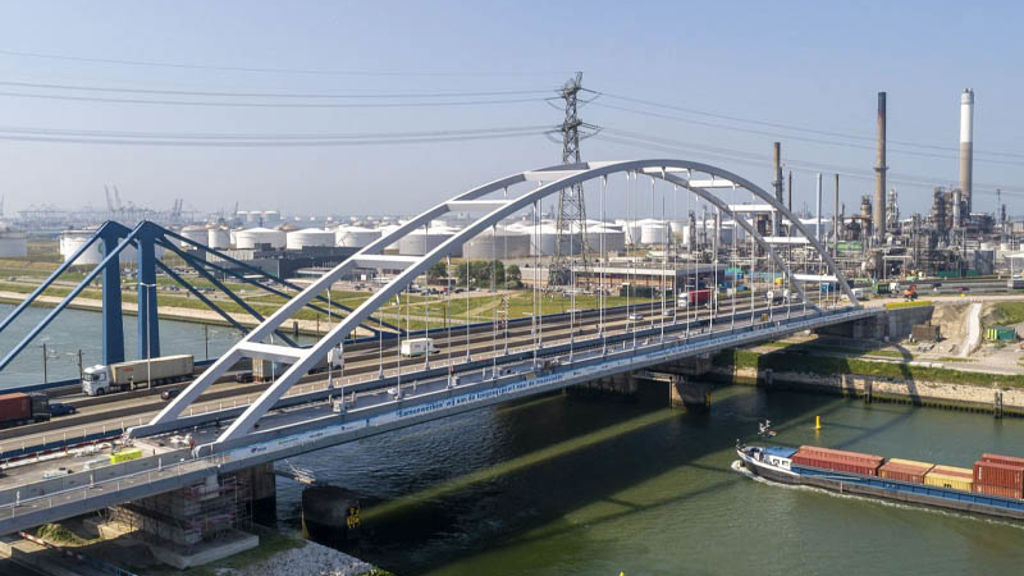
Strengthening Suurhoff bridge with innovations in bridge renovation
Suurhoff bridge, Netherlands
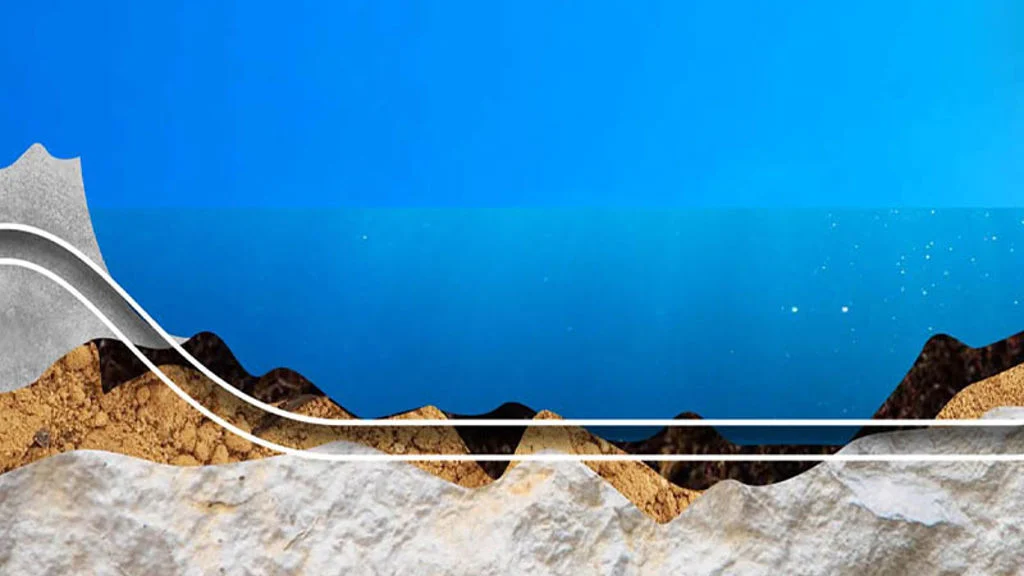
Sustainable innovation drives design of Copenhagen’s proposed Eastern Ring Road
Eastern Ring Road, Denmark
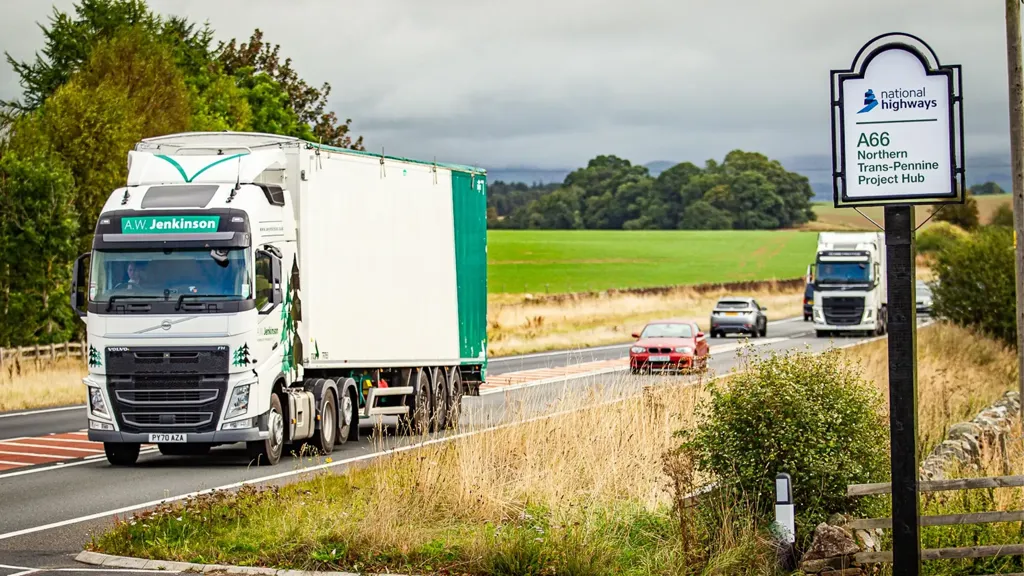
Transforming the A66 Northern Trans-Pennine to deliver more than just safer journeys
A66 Northern Trans-Pennine upgrade, United Kingdom
Get in touch with us
If you'd like to speak to one of our roads and streets experts about any of the issues raised on this page or a potential collaboration then please get in touch by completing the form.
